
This year we lost a Nobel laureate, several Pulitzer Prize winners, many writers with wide readerships, and many more who never achieved the acclaim or the audiences they deserved. Happily for them all, their books live on.
C.D. Wright
C.D. Wright’s poetry was grounded in her native Arkansas — she called her early style “idiom Ozarkia” — but her work broke so many boundaries and wandered so freely that she belonged, in the words of the poet Joel Brouwer, “to a school of exactly one.” Wright, who died on Jan. 12 at 67, wrote that her poems were about “desire, conflict, the dearth of justice for all. About persons of small means.” Some of those persons were inmates she interviewed in Louisiana prisons, who inspired these lines:
AC or DC
You want to be Westinghoused or Edisoned
Your pick you’re the one condemned
Tennessee’s retired chair available on eBay.
In an autobiographical prose poem from 2005, Wright, a MacArthur fellow and winner of the Lenore Marshall Poetry Prize and the National Book Critics Circle Award, wrote this of herself: “I poetry. I write it, study it, read it, edit it, publish it, teach it…Sometimes I weary of it. I could not live without it. Not in this world.”
Read: Several Millions Year in Reading contributors on Wright’s work.
Umberto Eco
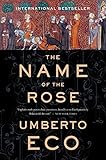 Umberto Eco, who died on Feb. 15 at 84, was a semiotician by training, a scholar who studied signs and symbols — religious icons, clothing, words, musical scores. When he turned his hand to writing novels, Eco achieved superstar success on a global scale, never more so than with the first of his seven novels, The Name of the Rose, a yarn about murderous monks in a medieval monastery. Though it was larded with descriptions of heresies and Christian theology, it succeeded as a page-turner, a shameless whodunit that sold 10 million copies and was made into a big-budget Hollywood movie starring Sean Connery. Eco’s runaway popularity won the scorn of some critics and more than a few disgruntled academics, but he was unapologetic about wearing two hats. “I think of myself as a serious professor who, during the weekend, writes novels,” he said. In a postscript to The Name of the Rose, he added, “I wrote a novel because I had a yen to do it. I believe this is sufficient reason to set out to tell a story. Man is a storytelling animal by nature. I began writing in March of 1978, prodded by a seminal idea: I felt like poisoning a monk.”
Umberto Eco, who died on Feb. 15 at 84, was a semiotician by training, a scholar who studied signs and symbols — religious icons, clothing, words, musical scores. When he turned his hand to writing novels, Eco achieved superstar success on a global scale, never more so than with the first of his seven novels, The Name of the Rose, a yarn about murderous monks in a medieval monastery. Though it was larded with descriptions of heresies and Christian theology, it succeeded as a page-turner, a shameless whodunit that sold 10 million copies and was made into a big-budget Hollywood movie starring Sean Connery. Eco’s runaway popularity won the scorn of some critics and more than a few disgruntled academics, but he was unapologetic about wearing two hats. “I think of myself as a serious professor who, during the weekend, writes novels,” he said. In a postscript to The Name of the Rose, he added, “I wrote a novel because I had a yen to do it. I believe this is sufficient reason to set out to tell a story. Man is a storytelling animal by nature. I began writing in March of 1978, prodded by a seminal idea: I felt like poisoning a monk.”
Read: An account of an in-person Eco sighting or our review of Confessions of a Young Novelist.
Harper Lee

 Harper Lee, who died on Feb. 19 at 89, spent most of her long life claiming she was perfectly content being a one-hit wonder. No wonder. To Kill a Mockingbird won the Pulitzer Prize and has been branded “America’s most beloved novel,” with more than 40 million copies in print and a permanent place on every high school reading list in the land. The love was enormous but not universal. Flannery O’Connor dismissed the novel as “a child’s book,” which strikes me as neither unkind nor unfair.
Harper Lee, who died on Feb. 19 at 89, spent most of her long life claiming she was perfectly content being a one-hit wonder. No wonder. To Kill a Mockingbird won the Pulitzer Prize and has been branded “America’s most beloved novel,” with more than 40 million copies in print and a permanent place on every high school reading list in the land. The love was enormous but not universal. Flannery O’Connor dismissed the novel as “a child’s book,” which strikes me as neither unkind nor unfair.
In 2015, Lee’s lawyer talked her into publishing a “lost” novel, Go Set a Watchman. Reviews were mixed, to put it kindly, and many fans were dismayed to learn that Atticus Finch did not always walk on water, that he was capable, in fact, of being a card-carrying south Alabama peckerwood racist. Of course Watchman became an instantaneous #1 bestseller, but that doesn’t dispel the fact that some books should have the decency to stay lost and die a quiet death.
Read: An account of a visit to Lee’s hometown; an analysis of Lee’s symbolism; or our review of Watchman.
Jim Harrison
When I heard that Jim Harrison had died on March 26 at 78, I immediately reread Revenge, my personal favorite of his many magnificent novellas, a form at which he had few peers. This one has it all: vivid descriptions of the twinned geographies of the natural world and the human heart, a torrid affair between a former fighter pilot and a dangerous friend’s wife, which leads to rococo violence, which leads to more violence during a long campaign for revenge. The novella runs just 96 pages, yet it contains worlds. Jim Harrison’s world was a moral place, as finely calibrated as a clock. Violence begets violence; violation demands vengeance; every act has its price, and that price must be paid.
Harrison was also a prolific novelist, essayist and poet, author of a memoir, a children’s book, and some very funny writing about food. A shaggy Falstaffian from the wilds of northern Michigan, Harrison was a man with boundless appetites for food and wine, hunting and fishing, literature and life, a man who adored antelope liver and detested skinless chicken breasts, a man who once flew to France to take part in a 37-course lunch that featured 19 wines. French readers revere him, though his American readership is smaller than it should be. No matter. Jim Harrison lived and wrote his own way, the only way — all the way to the brim.
Read: A personal account of a decades-long friendship with Harrison.
Michael Herr
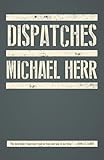 Many books have captured the physical horrors of our Vietnam misadventure, but only one captured its psychedelic, rock ‘n’ roll absurdity. That book was Dispatches, a bombshell piece of reporting by Michael Herr that appeared in 1977, nearly a decade after his tour of duty as a war correspondent for Esquire magazine, covering an unwinnable orgy of carnage the only purpose of which, as he put it, was “maintaining the equilibrium of the Dingdong by containing the ever encroaching Doodah.” Herr, who died on June 23 at 76, made no secret of his respect for what the grunts went through, or his disdain for the officers and politicians who put them through it. John le Carré called Dispatches “the best book I have ever read about men and war in our time.” A decade after it appeared, Herr co-wrote the screenplay for Stanley Kubrick’s Full Metal Jacket. He also wrote a book about his friendship with Kubrick, and a fictionalized biography of Walter Winchell. But in the last years of his life, Herr took up Buddhism and gave up writing.
Many books have captured the physical horrors of our Vietnam misadventure, but only one captured its psychedelic, rock ‘n’ roll absurdity. That book was Dispatches, a bombshell piece of reporting by Michael Herr that appeared in 1977, nearly a decade after his tour of duty as a war correspondent for Esquire magazine, covering an unwinnable orgy of carnage the only purpose of which, as he put it, was “maintaining the equilibrium of the Dingdong by containing the ever encroaching Doodah.” Herr, who died on June 23 at 76, made no secret of his respect for what the grunts went through, or his disdain for the officers and politicians who put them through it. John le Carré called Dispatches “the best book I have ever read about men and war in our time.” A decade after it appeared, Herr co-wrote the screenplay for Stanley Kubrick’s Full Metal Jacket. He also wrote a book about his friendship with Kubrick, and a fictionalized biography of Walter Winchell. But in the last years of his life, Herr took up Buddhism and gave up writing.
Read: Our look at war books and the work Herr inspired.
James Alan McPherson
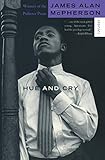
 James Alan McPherson was the first black writer to win the Pulitzer Prize for fiction, for his 1977 story collection Elbow Room. After attending segregated schools in his native Georgia and graduating from Harvard Law School, McPherson took a sharp detour into the writing life, earning a master of fine arts degree from the Iowa Writers’ Workshop, where he wound up teaching from 1981 until his retirement in 2014.
James Alan McPherson was the first black writer to win the Pulitzer Prize for fiction, for his 1977 story collection Elbow Room. After attending segregated schools in his native Georgia and graduating from Harvard Law School, McPherson took a sharp detour into the writing life, earning a master of fine arts degree from the Iowa Writers’ Workshop, where he wound up teaching from 1981 until his retirement in 2014.
Though his short stories, essays, and memoirs didn’t flinch from the evils of Jim Crow, McPherson strove to embrace the one thing he felt could possibly bestow greatness on America: its cultural diversity. An acolyte and occasional collaborator with Ralph Ellison, McPherson wrote in a 1978 essay in The Atlantic: “I believe that if one can experience its diversity, touch a variety of its people, laugh at its craziness, distill wisdom from its tragedies, and attempt to synthesize this inside oneself without going crazy, one will have earned to right to call oneself a citizen of the United States.” Speaking of the characters in his first collection of short stories, Hue and Cry, McPherson said, “Certain of these people happen to be black, and certain of them happen to be white; I have tried to keep the color part of most of them far in the background, where these things should rightly be kept.”
Read: A note on McPherson’s skill as a eulogist.
Edward Albee
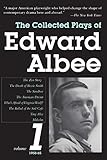
 George and Martha — sad, sad, sad. It’s unlikely anyone will ever write a more acidic portrait of an American marriage than Edward Albee’s play Who’s Afraid of Virginia Woolf?. After his 1959 debut, The Zoo Story, which opened in Berlin on a bill with Samuel Beckett’s Krapp’s Last Tape, Albee went on to write some 30 plays that shone light into the darkest precincts of well-to-do lives, where the regrets and the lies and the self-deception dwell. Though Albee, who died on Sept. 16 at 88, won two Tony Awards and three Pulitzer Prizes, he was not always embraced by critics or audiences. One reviewer dismissed Virginia Woolf as “a sick play for sick people.” Its film adaptation, starring Richard Burton as George, a bitter alcoholic academic, and Liz Taylor as Martha, his bitter alcoholic wife, captured the essence of Albee’s output. He described his work this way to a New York Times interviewer in 1991: “All of my plays are about people missing the boat, closing down too young, coming to the end of their lives with regret at things not done, as opposed to things done. I find most people spend too much time living as if they’re never going to die.”
George and Martha — sad, sad, sad. It’s unlikely anyone will ever write a more acidic portrait of an American marriage than Edward Albee’s play Who’s Afraid of Virginia Woolf?. After his 1959 debut, The Zoo Story, which opened in Berlin on a bill with Samuel Beckett’s Krapp’s Last Tape, Albee went on to write some 30 plays that shone light into the darkest precincts of well-to-do lives, where the regrets and the lies and the self-deception dwell. Though Albee, who died on Sept. 16 at 88, won two Tony Awards and three Pulitzer Prizes, he was not always embraced by critics or audiences. One reviewer dismissed Virginia Woolf as “a sick play for sick people.” Its film adaptation, starring Richard Burton as George, a bitter alcoholic academic, and Liz Taylor as Martha, his bitter alcoholic wife, captured the essence of Albee’s output. He described his work this way to a New York Times interviewer in 1991: “All of my plays are about people missing the boat, closing down too young, coming to the end of their lives with regret at things not done, as opposed to things done. I find most people spend too much time living as if they’re never going to die.”
Read: A personal account of someone who got his mail from Albee (really).
Gloria Naylor
 With her 1982 debut novel, The Women of Brewster Place, Gloria Naylor hit the trifecta: a National Book Award, a TV adaptation by Oprah Winfrey, and a wide and devoted readership. Naylor, who died on Sept. 28 at 66, spun her best-known novel around seven African-American women, straight and gay, who live in a shabby housing project plagued by sexual predators and poverty. Naylor said she regarded those seven women “like an ebony phoenix, each in her own time and with her own season had a story.” The Women of Brewster Place won the National Book Award for a first novel in 1983. A New York native and one-time Jehovah’s Witnesses missionary, Naylor said she left the church out of frustration over its limited role for women, a break that sent her into a deep depression. Like the “ebony phoenix,” she rose and was saved by her writing.
With her 1982 debut novel, The Women of Brewster Place, Gloria Naylor hit the trifecta: a National Book Award, a TV adaptation by Oprah Winfrey, and a wide and devoted readership. Naylor, who died on Sept. 28 at 66, spun her best-known novel around seven African-American women, straight and gay, who live in a shabby housing project plagued by sexual predators and poverty. Naylor said she regarded those seven women “like an ebony phoenix, each in her own time and with her own season had a story.” The Women of Brewster Place won the National Book Award for a first novel in 1983. A New York native and one-time Jehovah’s Witnesses missionary, Naylor said she left the church out of frustration over its limited role for women, a break that sent her into a deep depression. Like the “ebony phoenix,” she rose and was saved by her writing.
William Trevor
William Trevor wrote extraordinary fiction about the most ordinary of people — mechanics, priests, and farmers who lived in small English and Irish towns. Trevor, a native of Ireland who died on Nov. 20 at 88, wrote nearly 20 novels, many of them prize-winners, but he considered his true form the short story. Few would argue. “I’m a short story writer who writes novels when he can’t get them into short stories,” he said, adding, “I’m very interested in the sadness of fate, the things that just happen to people.” Like the evening a lovelorn Irish mechanic named Cahal, in the short story “The Dressmaker’s Child,” is driving a pair of Spanish lovers back from a visit to a bogus religious pilgrimage site — and the girl of the story’s title hurls herself at the passing car. Cahal is tortured by uncertainty over what happened to the girl and what will happen to him — until the dressmaker offers him a twisted form of absolution. Things just happen to people, and suddenly their ordinary predicaments are transformed into something startling and new.
Read: Lionel Shriver on reading Trevor.
And let’s not forget these notables, in alphabetical order:
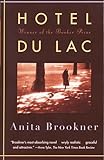 Anita Brookner, 87, was an accomplished art historian when she started writing novels in her 50s, many of them about women mired in gloom. Her fourth novel, 1984’s Hotel du Lac, won the Booker Prize.
Anita Brookner, 87, was an accomplished art historian when she started writing novels in her 50s, many of them about women mired in gloom. Her fourth novel, 1984’s Hotel du Lac, won the Booker Prize.
Read: A detailed exploration of of Brookner’s considerable charms.
David Budbill, 76, worked out of a remote cabin in rural Vermont for more than 40 years, writing stripped-down poems about the Vermont mountains and the “invisible” people who live there, in all their beauty and ugliness. A workmanlike writer who detested artsy pretension, Budbill was once asked about the source of his inspiration. “I don’t know where it comes from,” he replied, “and I don’t care.”
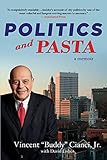 Vincent “Buddy” Cianci, 74, was the author of an autobiography, but he’ll be remembered as the brash mayor who breathed new life into his tired old hometown of Providence, Rhode Island — only to be undone by some nasty habits. He assaulted a romantic rival with a fireplace log, an ashtray, and a lit cigarette, which cost him his job as mayor. After serving a suspended sentence and winning re-election, Cianci was convicted of racketeering for accepting envelopes of cash in return for city jobs. After serving a federal prison sentence, he made a third run for the mayor’s office in 2015, but lost. His autobiography was called Politics and Pasta.
Vincent “Buddy” Cianci, 74, was the author of an autobiography, but he’ll be remembered as the brash mayor who breathed new life into his tired old hometown of Providence, Rhode Island — only to be undone by some nasty habits. He assaulted a romantic rival with a fireplace log, an ashtray, and a lit cigarette, which cost him his job as mayor. After serving a suspended sentence and winning re-election, Cianci was convicted of racketeering for accepting envelopes of cash in return for city jobs. After serving a federal prison sentence, he made a third run for the mayor’s office in 2015, but lost. His autobiography was called Politics and Pasta.
Read: A personal account of meeting Cianci.
Pat Conroy, 70, may have written his share of prose dripping with Spanish moss and Low Country hokum, but he attracted an army of devoted readers. he son of an abusive Marine fighter pilot, Conroy turned the horrors of his childhood into the novel The Great Santini, then followed it with The Lords of Discipline and The Prince of Tides, all made into hit Hollywood movies, all gobbled up by his fans. Asked to describe his son’s readers, the ever-charming Donald Conroy said, “That’s easy: psychiatrists, homosexuals, extreme liberals and women.” He forgot to add: and lots of them.
Read: Conroy’s reaction to having his books banned.
Warren Hinckle, 77, was the swashbuckling, hard-drinking editor of Ramparts and other magazines who railed against the Vietnam War, published Che Guevara’s diaries and Eldridge Cleaver’s letters from prison, and helped birth gonzo journalism by publishing Hunter S. Thompson’s seminal article “The Kentucky Derby Is Decadent and Depraved,” along with Ralph Steadman’s volcanic drawings. American journalism was changed forever.
Thom Jones, 71, was a recovering alcoholic working as a high school janitor when he mailed a short story called “The Pugilist at Rest” to The New Yorker. The magazine published the story in 1991, and it won the O. Henry Prize for best short story. It was a stunning beginning to a career of writing semi-autobiographical stories about soldiers, boxers, janitors, crime victims — “people,” as Jones put it, “you don’t want living next door to you.”
Read: A Year in Reading on Jones.
Imre Kertész, 86, survived internment at Auschwitz and Buchenwald, then spent years writing semi-autobiographical novels about the Holocaust and its aftermath. The books, remarkable for their lack of sensationalism, languished in obscurity until 2002, when Kertesz became the only Hungarian to win the Nobel Prize in Literature.
Read: A Year in Reading on Kertész.
 Florence King, 80, was one of the last of a breed that is all but extinct: the misanthropic curmudgeon. In columns for the conservative National Review and several books, most notably Confessions of a Failed Southern Lady, King skewered liberalism, feminism, and anything that smelled remotely of political correctness. Nobody could possibly agree with all of her opinions, but just about everybody admired her ability to lacerate and enrage, which, after all, is what misanthropic curmudgeons are supposed to do. She once wrote: “Feminists will not be satisfied until every abortion is performed by a gay black doctor under an endangered tree on a reservation for handicapped Indians.” Wow.
Florence King, 80, was one of the last of a breed that is all but extinct: the misanthropic curmudgeon. In columns for the conservative National Review and several books, most notably Confessions of a Failed Southern Lady, King skewered liberalism, feminism, and anything that smelled remotely of political correctness. Nobody could possibly agree with all of her opinions, but just about everybody admired her ability to lacerate and enrage, which, after all, is what misanthropic curmudgeons are supposed to do. She once wrote: “Feminists will not be satisfied until every abortion is performed by a gay black doctor under an endangered tree on a reservation for handicapped Indians.” Wow.
Read: A detailed look at King’s work and life.
W.P. Kinsella, 81, wrote 30 books of fiction, nonfiction and poetry, much of it infused with his intertwined love for magic realism and the game of baseball. His best known book is the novel Shoeless Joe, which was made into the 1989 movie Field of Dreams, in which Kevin Costner plays an Iowa farmer who carves a baseball diamond into his cornfield to attract Shoeless Joe Jackson and the rest of the disgraced Chicago “Black Sox” back from the grave. One viewer dismissed the movie as “Field of Corn,” but it produced a line that lives on: “If you build it, he will come.”
Read: A piece on the great writers of baseball.
Image Credit: Public Domain Pictures.









